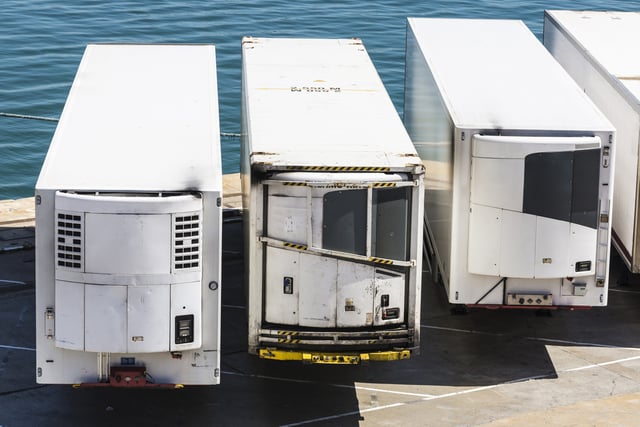Earlier this year, the FDA’s Food Safety Modernization Act (FSMA), activated a new requirement for carriers handling consumables requiring temperature control. Under the terms of this new rule, carriers must use “adequate temperature controls” and “maintain records of shipper-to-carrier communication, written procedures, agreements and training.” The somewhat vague statement of “adequate temperature controls” and the requirement to have documentation could be problematic.
Larger carriers were expected to meet the requirements of this new rule in April of 2017, but some smaller business carriers were given an extra year to comply with the regulation—or are exempt from this requirement. The question is: “is your business at risk?”
Who Has to Meet the New Compliance Standard?
According to the language of the FDA’s Implementation document, the rule covers “shippers, receivers, loaders, and carriers who transport food in the United States by motor or rail vehicle, whether or not the food is offered for or enters interstate commerce.” It also covers persons who ship food into the U.S. by motor or rail vehicle from other countries and persons exporting food to other countries from the U.S.—at least until the shipment reaches the U.S. border (at which point it is covered by the import laws of the country it enters from there).
But, there are exceptions to this compliance rule.
The FDA is granting some extra time to comply to some businesses. As noted in the FDA’s publication, “Small businesses [sic] motor carriers who are not also shippers and/ or receivers having less than $27.5 million in annual receipts, and all other businesses employing fewer than 500 persons– have an additional year to comply.” So, instead have having to be compliant already, these businesses have until April of 2018 to be compliant with the rule.
Additionally, some businesses are exempt from the rule entirely. The full bullet list of exemptions, as presented in the FDA publication, is:
- Shippers, receivers, loaders or carriers engaged in food transportation operations that have less than $500,000 in average annual revenue
- Transportation activities performed by a farm
- Transportation of food that is transshipped through the United States to another country
- Transportation of food that is imported for future export and that is neither consumed or distributed in the United States
- Transportation of compressed food gases (e.g. cylinders of carbon dioxide, nitrogen used in food and beverage products), and food contact substances
- Transportation of human food byproducts for use as animal food without further processing
- Transportation of food that is completely enclosed by a container except a food that requires temperature control for safety
- Transportation of live food animals, except molluscan shellfish
The first bullet protects small local businesses who might not be able to afford all of the tools required for complete compliance, while the second protects farms from excessive regulatory burden in their day-to-day operations.
How Can I Comply with the New Sanitary Requirements?
Aside from the obvious task of keeping storage spaces in your reefer trucks clean, sorting goods so that raw products don’t touch ready-to-eat products, and keeping non-food products from contaminating your food products, you could use remote temperature monitoring equipment to keep track of temperatures in your shipping units.
It’s not enough under the new rules to simply have a “cold” compartment for temperature-controlled goods—you have to be able to prove that you maintained the right temperature conditions while shipping those goods.
Here’s where GPS tracking for reefer trucks and refrigerated trailers can come in handy. Some GPS units can be tied into the temperature monitoring systems of a cold truck/trailer to track temperature data. These records could prove vital for compliance with FDA regulations. Also, if the power to a refrigerated trailer fails or the temperatures inside fall out of a specified limit, you can set up alerts for these events which make identifying and fixing the problem much faster.
Even if you don’t have to comply with the new requirements because you meet the standards for one of the exceptions, using GPS tracking for your refrigerated trucks and trailers is still a good idea.
With GPS tracking, you can remotely monitor your assets in the field to improve fuel efficiency, prevent theft, and make your operations more efficient.
Are you ready for compliance with the FMSA’s sanitary food transportation requirements? Be prepared with a GPS tracking solution for your refrigerated transportation assets!
Like what you're reading? Subscribe to our blog.
Get our latest posts straight to your inbox.
Subscribe to Our Blog





